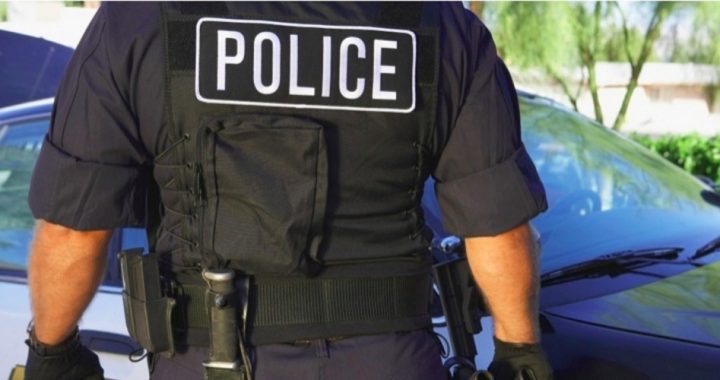
More than 100 Wisconsin police agencies have backed out of security agreements to assist the Milwaukee police with crowd control at the Democratic National Convention scheduled for August 17-20. The main reason for the pull-out seems to be a directive issued by the Milwaukee Fire and Police Commission that the city no longer use tear gas to control unruly crowds.
Although the convention has been downsized greatly and will be a largely virtual event due to COVID-19 concerns, about 300 people, including presumptive nominee Joe Biden, are expected to be at the Wisconsin Center in downtown Milwaukee for the convention. Police are concerned that the convention could attract large-scale protests due to current far-left activities such as the ongoing riots in Portland.
The police agencies were part of a collective of departments outside of Milwaukee who were scheduled to send more than a thousand officers to protect the event. The pull-outs occurred after the Fire and Police Commission directed Milwaukee Police Chief Alfonso Morales not to use tear gas or pepper spray in dealing with unruly protesters last week.
The Fire and Police Commission issued the directive in response to citizen complaints about the use of crowd-dispersal equipment such as tear gas, smoke canisters, and rubber bullets during protests and rioting from May 29 through June 3 in the wake of the death of Minneapolis criminal George Floyd. In that order, the Fire and Police Commission threatened to fire Morales should he fail to comply with the order.
But police agencies throughout the state are now refusing to send officers into a potentially dangerous situation without the proper equipment to defend themselves. Fond du Lac Police Chief William Lamb explained his department’s decision to back out of the security arrangement.
“We regret having to do that,” said Lamb, who also chairs the Wisconsin Police Executive Group, a coalition of police chiefs of cities with more than 20,000 residents.
“We respect the Fire and Police Commission’s decision,” Lamb said. “But in this particular case, we strongly disagree with the actions they’ve taken. We believe removing these tools, the use of chemical irritants or pepper spray, from the available resources that the law enforcement officers would have at their disposal if the protests became non-peaceful would severely compromise the safety of the public and also the safety of the law enforcement officers who would be assigned to protect the DNC.”
West Allis Deputy Chief Robert Fletcher echoed those concerns: “Our concern is that in the event protests turn non-peaceful, such a policy would remove tools from officers that otherwise may be legal and justifiable to utilize in specific situations.”
Milwaukee Alderman Bob Bauman accused the chiefs from around the state of playing politics with the convention in an attempt to support Milwaukee chief Morales. “The chiefs across the state are sort of coalescing to defend Morales and kind of take potshots at the Fire and Police Commission,” Bauman said.
“The other police forces claiming, ‘well, we’re not going to participate unless there’s adequate [crowd control resources],’ Well, what’s adequate? So again, I think it’s politics mostly that’s being played in support of law in general and Chief Morales in particular,” Bauman concluded.
In June, just after the George Floyd riots in Milwaukee the previous week, the city canceled plans to purchase more crowd-control ordinance after several of the city’s council members objected to the use of tear gas and rubber bullets. That cancellation was the first red flag for many departments, with Chief Patrick Mitchell of the West Allis Police Department writing to Morales, “The actions of the Milwaukee Common Council are causing me to reevaluate whether or not my Department will provide officers for the DNC.”
Some police agencies have other reasons for opting out of the security arrangement. The Madison Police Department, which had originally promised 100 officers for the event, cited “an accelerating COVID-19 pandemic coupled with ongoing protests” in the city as the reason it could not follow through with their agreement with Milwaukee.
With the convention now less than three weeks away, Chief Morales is under tremendous pressure to ensure the safety of the DNC and the citizens of his city. The Fire and Police Commission has removed certain key tools that Morales needs to do that job. And because of that short-sighted directive, Morales must also contend with having far fewer officers to accomplish his mission.
“Not having those tools increases the potential for more violence,” Morales told TMJ4. “That’s a big concern for the law enforcement community within Milwaukee and outside of Milwaukee.”
With the convention downsized this year, perhaps the worries of mass protests of the Democratic National Convention are being overblown. But if such protests or riots do occur, the Milwaukee Common Council and the city’s Fire and Police Commission will have themselves to blame if and when police are unable to control them.
Image: Thinkstock
James Murphy is a freelance journalist who writes on a variety of subjects. He can be reached at [email protected].




